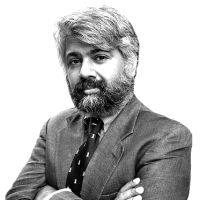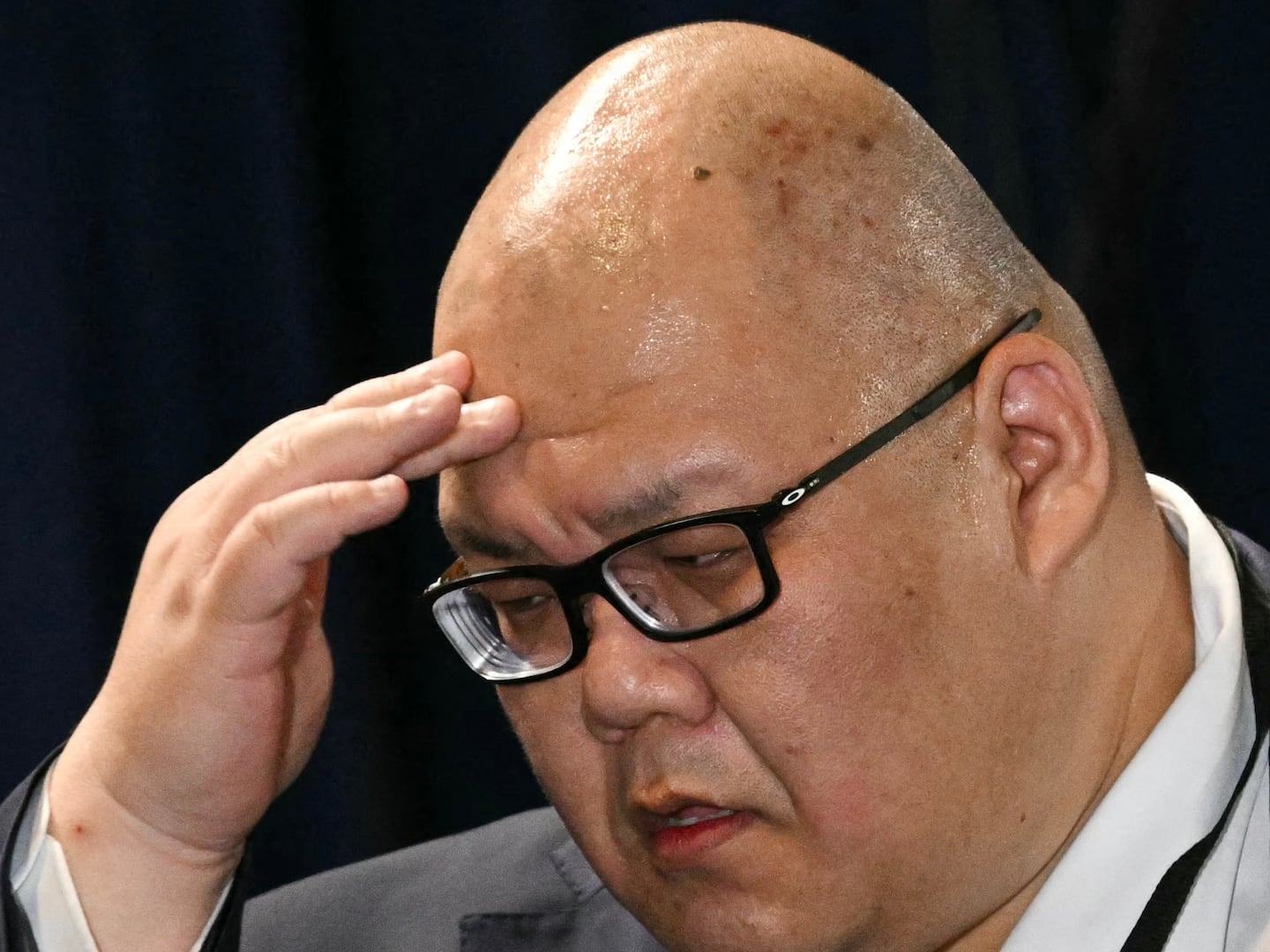
“When he was 3 years old, he could sing songs in four languages,” says the wistful 90-year-old mother of Sergio Vieira de Mello, the U.N.’s special representative to Iraq who was killed by a suicide bomber from al Qaeda in August 2003.
Sergio, a Brazilian, was a cult figure, described by his adoring colleagues as a cross between James Bond and Bobby Kennedy, the sort of man whom the tabloids in New York and London might have called, had they been less viscerally dismissive of the United Nations, a “humanitarian hunk.” Sergio was, in the words of Secretary-General Kofi Annan, a man as gray and inscrutable as de Mello was brightly plumed and gregarious, “the only top official in the U.N. system known to everyone by his first name.” (This is only partly true: Annan himself was known widely as “Kofi,” though his name was never uttered with anything like the affection that was accorded to “Sergio.”)
“He liked being at the center of the action, always; he liked being the center of attention, always.”
On Thursday at 8 p.m. Eastern, HBO airs a taut and moving documentary about the death and life of Sergio Vieira de Mello. Called, aptly, Sergio, the film teeters on the brink of hagiography. And yet what might have seemed in other cases, and with other men, like an excess of gush—a “hagumentary,” as it were—is not in the least grating. For Sergio was a person who did nothing by half measures, and certainly did nothing without panache, so why should an appreciative film about him be circumspect, or toned down? After all, Sergio was someone whom the redoubtable Richard Holbrooke describes as “dazzling” and “charismatic,” and of whom the legendarily buttoned-up Condoleezza Rice waxes moistly: “He was elegant, he was committed, he drew you into a conversation with him, you just knew that he was somebody who could command a room.” (Observe her as she speaks these words, and you will observe a woman’s unbridled admiration for a man.)
Sergio is based on a mighty fine book by Samantha Power, published in 2008, and Power is one of the many people who appear on camera to extol the virtues of the man who was, in her words, “someone you could put into harm’s way.” In an organization bedeviled by empty suits and time-servers, Sergio was a dynamic, pragmatic, unorthodox go-getter, a “do-er” among windbags and panjandrums. He was a U.N. lifer, no doubt, joining the world body right out of the Sorbonne in the early 1970s, but at no time in his career did he show anything other than a passionate commitment to his vision of justice, of multilateral diplomacy, of impartiality and independence. His spell as the U.N.’s “viceroy” in East Timor, during which he guided that troubled territory to independence, provided the organization with its finest nation-building success, and perhaps its only indisputable triumph since its founding in 1948. (Typically, on the night of Timorese independence, he skipped the afterparties to go running with his statuesque Argentine fiancée, Carolina Larriera, ceding the public stage to the politicians who’d gathered in the country’s capital from all over the globe.)
Sergio was a muscular opponent of the U.S. intervention in Iraq, and when he was asked by Kofi to pack his bags for Baghdad in the summer of 2003, he was not entirely over the moon. He’d just begun his job in Geneva as the U.N.’s high commissioner for human rights and was enjoying a semblance of domestic bliss with Larriera after the rigors of Timor. And yet he went to Baghdad: How could he not? As Samantha Power explains, “He liked being at the center of the action, always; he liked being the center of attention, always.” Yet the mission to Baghdad was, to Sergio, immensely troubling: It was not a humanitarian mission, nor a “political management” mission; it was, in effect, a compromise mission, mandated by the Security Council as a complement to the U.S. occupation.
In riveting footage from a meeting in Baghdad, one sees Sergio bristle when asked by a local journalist if the U.N. presence in Baghdad was just a cover for the U.S. occupation. In words that went down in Washington like a lead balloon—for they made transparent the belief that was widespread in the U.N. that the U.S. actions in Iraq were illegitimate—Sergio said in response: “First of all, my friend, the U.N....[is] no tool, no cover, for anyone. All right? We are an independent organization. Secretary-General Kofi Annan and myself are independent, from anyone, so don’t suggest for a second that we are [in Iraq] supporting the U.S., or the coalition. All right?”
Sergio’s adamant insistence on the separation from the U.S. may, in the end, have contributed to his death: He ordered the U.S. Army Bradley armored vehicle that stood guard at the gates of the Canal Hotel, where he and his staff had their offices, to be removed. In the words of a U.S. serviceman, “He was trying to tone down the American presence at the U.N. compound, so it didn’t look like the U.N. was part of the coalition presence.”
The departure of the Bradley, and the absence of a reinforced wall around the hotel, gave free, destructive access to al Qaeda, one of whose killers drove a truck packed with explosives into the building. Abu Musab al-Zarqawi, the sanguinary head of “al Qaeda in Mesopotamia,” believed that the U.N. was a nest of Jews and American spies. On camera, filmed in Jordan, an al Qaeda operative says that Zarqawi wanted to kill “that criminal Sergio.”
Sergio didn’t stand a chance. When the building collapsed, he was trapped under immovable rubble, with the body of another man atop him. Rescue efforts were shockingly tardy, and inadequate, and the two U.S. soldiers who spent nearly an hour trying to dig him out had only their bare hands, a lady’s handbag with which to haul up the bricks, and a length of rope to work with. There would seem to be no doubt that Sergio would have survived had the rescue effort been more scientific and better-manned.
He died, in the end, a hero’s death, asking after his staff and his fiancée, Larriera. Great portions of the film dwell on her, and on her simple, painful expressions of love and longing for the man she clearly worshipped. Looking at her keep her composure as she recounts his last minutes alive, one is aware that some of his greatness, and goodness, has rubbed off on her. “We were six weeks away from going to Brazil,” she says. You expect her, then, to break down, but she does not. There will be viewers, I’m sure, who will do so.
Tunku Varadarajan is a national affairs correspondent and writer at large for The Daily Beast. He is also a research fellow at Stanford’s Hoover Institution and a professor at NYU’s Stern Business School. He is a former assistant managing editor at The Wall Street Journal. (Follow him on Twitter here.)





